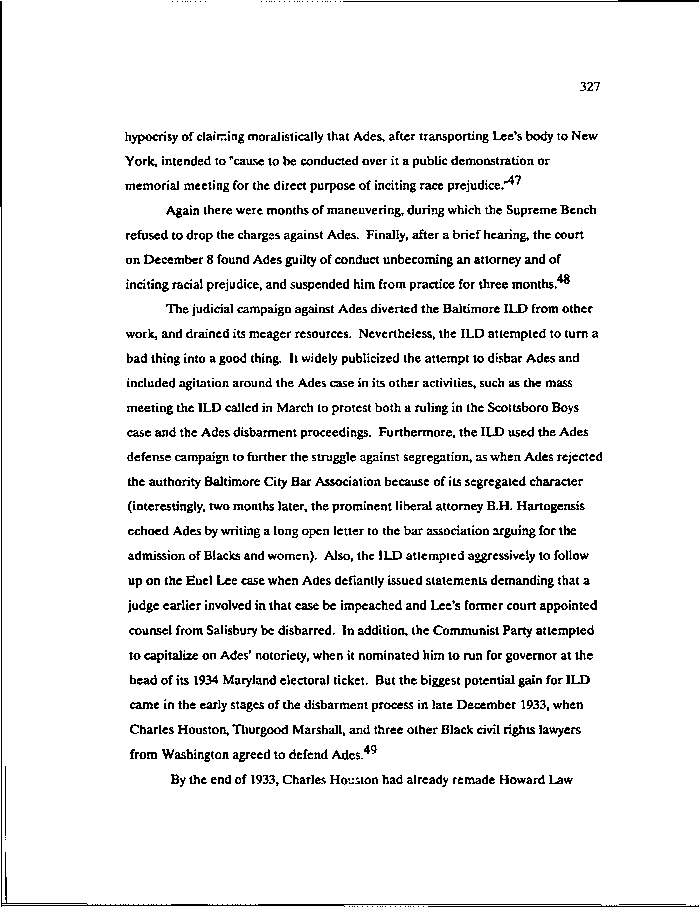|
327
hypocrisy of claiming moralistically that Ades, after transporting Lee's body to New
York, intended to "cause to be conducted over it a public demonstration or
memorial meeting for the direct purpose of inciting race prejudice. '
Again there were months of maneuvering, during which the Supreme Bench
refused to drop the charges against Ades. Finally, after a brief hearing, the court
on December 8 found Ades guilty of conduct unbecoming an attorney and of
inciting racial prejudice, and suspended him from practice for three months.
The judicial campaign against Ades diverted the Baltimore ILD from other
work, and drained its meager resources. Nevertheless, the ILD attempted to turn a
bad thing into a good thing. It widely publicized the attempt to disbar Ades and
included agitation around the Ades case in its other activities, such as the mass
meeting the ILD called in March to protest both a ruling in the Scottsboro Boys
case and the Ades disbarment proceedings. Furthermore, the ILD used the Ades
defense campaign to further the struggle against segregation, as when Ades rejected
the authority Baltimore City Bar Association because of its segregated character
(interestingly, two months later, the prominent liberal attorney B.H. Hartogcnsis
echoed Ades by writing a long open letter to the bar association arguing for the
admission of Blacks and women). Also, the ILD attempted aggressively to follow
up on the Euel Lee case when Ades defiantly issued statements demanding that a
judge earlier involved in that case be impeached and Lee's former court appointed
counsel from Salisbury be disbarred. In addition, the Communist Party attempted
to capitalize on Ades' notoriety, when it nominated him to run for governor at the
head of its 1934 Maryland electoral ticket. But the biggest potential gain for ILD
came in the early stages of the disbarment process in late December 1933, when
Charles Houston, Thurgood Marshall, and three other Black civil rights lawyers
from Washington agreed to defend Ades.49
By the end of 1933, Charles Houston had already remade Howard Law
|

